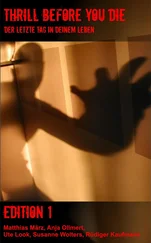“You have cats, right?” It was Heather talking to him, the woman standing suddenly right beside him. Her eyes were blue and she was staring at him intensely.
“Yes. Two.”
“I believe Tanya’s pretty good with cats. But when we get back, let’s bring her to the playroom on the third floor of the shelter. We can see how she does there with some of the cats we have right now.”
“Okay.”
She pushed her bangs off her face and gazed at his sling. “How are you doing?” she asked. “It looks like she’s giving you a pretty good workout.”
“I’m right-handed.”
“When do you get your arm back?”
“Never.”
“Are you serious?”
“Completely. Nerve damage.”
She nodded thoughtfully and then said, “Your daughter’s thirteen, right?”
“Just turned thirteen, yes.”
“So, tell me: What are you going to do in four or five years when she leaves home? When she goes to college or gets a job?”
“You mean in regard to Tanya?”
“Yup. You said this dog would be a present for her.”
“I guess I’ll be walking her more often, then.”
“I presume you’re married.”
“I am,” he said. Glib responses passed through his head: For the moment. At present. Trying like hell. But he squashed them because the last thing he wanted was to give Heather the idea that Tanya might be brought back to the shelter at some point in the next four or five years because his daughter was leaving for college and his marriage had gone belly up. And though he knew it wasn’t necessary, he felt a prickle of defensiveness-that old anger-at the sensitive spot this woman inadvertently had touched, and he continued in a voice that was needlessly sharp, “Really, you don’t need to worry about my commitment to this dog. I’ve devoted my life to trying to stop animal cruelty: The last thing I would ever do is act irresponsibly in regard to this creature or behave in a manner that would in any way make her life difficult.”
“You don’t need to sell me on your devotion to animals,” Heather said. “I was only asking because I like Tanya, and I will do what I can to make sure she has a happy new life.”
Quickly Randy took the leash from him and gently reeled Tanya in. She knelt on the sidewalk before the animal and nuzzled her. “I think you are going to love every minute of your life with the McCullough family. Yes, I do,” she said, murmuring into the dog’s snout as if it were a microphone. And though she was talking to Tanya, Spencer knew she was speaking largely for Heather’s benefit. He sighed, forced himself to relax. He was very glad she had joined him.
LATER THAT DAY, farther uptown in Central Park, Nan Seton walked her own dog. Though the sun had set it was still light out, and they were on the path just north of the museum that bordered the reservoir. They were passed by joggers and young people on in-line skates, and sometimes the dog would crane his nose into the air as the exercisers slid by, savoring the aromas that their exertions left in their wake.
She liked walking the dog, despite the fact that she no longer felt well, because it created routine. And Nan cherished routine. Granted, in the country it was nice also just to allow the animal to wander aimlessly into the fields of lupine that surrounded her house. But here in Manhattan? It was reassuring to have a regimen. It would not expunge the despondency that had begun to envelope her in New Hampshire, but it would take her mind off it for long moments at a time. She could focus once more on the small repetitive acts and social rituals that filled out her days in the city, instead of on her fears for her family once she was gone. No one-no thing-was irreplaceable. But some people were more useful than others. And now she had to contend with the reality that whatever was ailing her (and Nan knew it was real, because she was many things but a hypochondriac was not among them) was not merely going to take her: When she was gone, her family would still be estranged.
She had just turned around and started back toward the park’s exit, the dog’s leash in one hand, when she saw that woman whom she believed was her son-in-law’s boss jogging in her direction. Dominique Germaine. She was wearing the sort of tight Lycra bike shorts which in Nan’s opinion bordered on the indecent and a halter top that left little of the woman’s stomach to the imagination. She was wearing a headset as she ran.
Nan didn’t believe the woman would recognize her as Spencer McCullough’s mother-in-law, though they had been introduced two or three times, including one afternoon when Spencer had lectured about George Bernard Shaw and nineteenth-century vegetarianism to a luncheon crowd at the Colony Club. (Nan had felt a twinge of guilt that the club had served salmon that day, but certainly her son-in-law hadn’t expected them to serve something with beans or tofu to a group of already gaseous elderly women.) She hadn’t really thought about what she was going to do-or why-but she called out to the woman as she approached, “Excuse me.”
Dominique stopped and for a moment jogged in place, and Nan could tell that she was trying to decide whether this stranger who was accosting her was a FERAL friend or foe. Clearly she was accustomed to being stopped by unfamiliar people. Then she allowed her legs to stop churning and bent down to pet the dog on the leash.
“This is a beautiful animal,” she murmured, and she nuzzled her face against his. “I am so sorry that I don’t have any Kibble-Soys for you,” she said ruefully to the dog.
“Kibble-Soys?”
“Meat-free dog biscuits.”
Nan resisted the urge to roll her eyes. “My name is Nan Seton. You are Dominique Germaine, aren’t you?”
“Guilty as charged. Are you a member of FERAL? I do hope so.”
“Well, I give money to your group each year in December. But I don’t know if I am, technically, a member.”
“Certainly you are. Thank you. We-the animals-appreciate whatever you give. Truly.”
“I’m Spencer McCullough’s mother-in-law.”
The woman rose to her feet, and Nan felt an odd and unexpected twinge of pride at her reaction.
“Well. I am so sorry about what happened,” she said. “It is such a tragedy.”
“John Seton is my son.”
“Of course he is,” she said, and instantly returned their conversation to her son-in-law. “It’s so good to have Spencer back. You can’t imagine. We missed him dreadfully this summer. Dreadfully.”
“I haven’t seen him since he was in New Hampshire. I only returned to the city a few hours ago. I may see him this Saturday or Sunday. I hope so.”
“He’s doing so much better this week. Really. So much better. He will, of course, never-”
“I know all the things he will never do again,” she said, surprising herself by cutting the woman off. She knew she could be blunt-on occasion even curt-but rarely would she interrupt someone while that other person was speaking.
“I feel so bad for him.”
“And for my daughter.”
Dominique nodded. “Yes. And for your daughter.”
“I’d like to talk to you.”
“We are, aren’t we?” She smiled.
“Spencer and my son aren’t speaking. And it’s making everything difficult. This weekend my son and his family are visiting the city, and I want to do something special for my granddaughters’ birthdays. Unfortunately, whatever I do, it won’t involve Spencer. He won’t go because John will be present.”
Dominique pasted on her face what she hoped was a thoughtful expression: one that was interested and winning and sympathetic. Inside, however, she was feeling peevish. She wanted to resume her run. Besides, it was this woman’s son whose indefensible enthusiasm for hunting had left one of her most senior staff members permanently disabled. “And you’re telling me this… why?” she said finally.
Читать дальше











